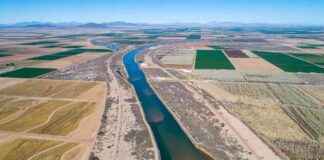Climate change references have been disappearing from USDA and Forest Service websites, raising concerns among experts and activists about data accessibility. The U.S. Department of Agriculture (USDA) has reportedly started removing climate change mentions from its online platforms, including the U.S. Forest Service page, as revealed by internal guidelines that surfaced recently. This move aligns with previous executive orders from President Donald Trump aimed at curtailing sustainability initiatives and controlling the content displayed on government websites.
USDA’s Removal of Climate Change References
The internal memo obtained by various news outlets mandated the USDA to categorize and archive or remove any webpages focusing on climate change while documenting all instances of its references for assessment. This directive prompted the elimination of several webpages and sites, notably those providing crucial information on climate resiliency in agriculture and wildfire vulnerability assessments. Despite the deadly wildfires that have plagued regions like Los Angeles, a significant amount of valuable information has vanished from official government websites.
Interestingly, some pages such as the Climate Hubs page and a general climate change adaptation page in agriculture remain accessible at the time of writing, creating a disparity in the removal process. Notably, a Forest Service webpage pinpointed by The Hill as still being online as of a specific date has since been taken down, signaling a systematic removal of climate change-related content.
Concerns Raised by Experts
The sweeping removal of climate change references on U.S. government websites has sparked concerns among experts, activists, and researchers. The erasure of vital information poses a threat to researchers’ access to crucial data that underpins their work on climate change impacts on human health and environmental sustainability. Jonathan Gilmour, a data scientist at Harvard T.H. Chan School of Public Health, expressed deep worry about the implications of data censorship on public health and research initiatives.
Gilmour emphasized the need for continued data availability to gain a comprehensive understanding of climate change impacts in the U.S. and globally. The lack of data accessibility could jeopardize ongoing research efforts and impede the development of effective mitigation strategies. As extreme weather events and disease outbreaks escalate due to climate change, maintaining access to reliable data becomes paramount for safeguarding public health and environmental resilience.
In light of these developments, experts stress the urgency of preserving data integrity and transparency in climate change research. The removal of climate change references from government websites underscores the challenges posed by political interference in scientific data dissemination. As stakeholders advocate for data transparency and scientific integrity, the implications of data censorship on public health and environmental sustainability remain a pressing concern for researchers and advocates alike.
Paige, a passionate advocate for sustainability based in Los Angeles, underscores the importance of data access in advancing climate change research and policy initiatives. With a background in journalism and sustainable agriculture, Paige’s commitment to environmental advocacy shines through in her writing, reflecting a deep-seated concern for the future of our planet in the face of mounting challenges.














